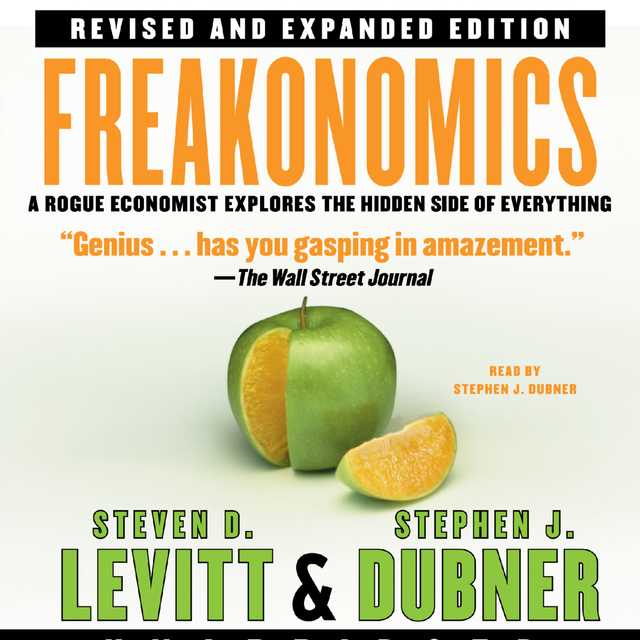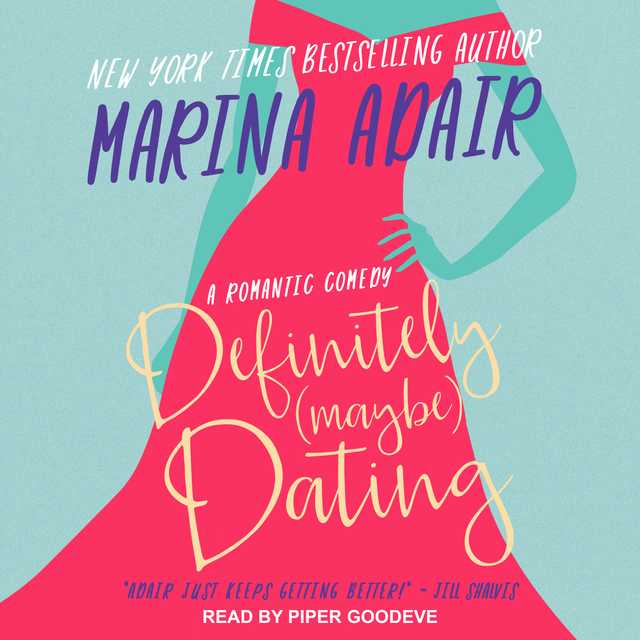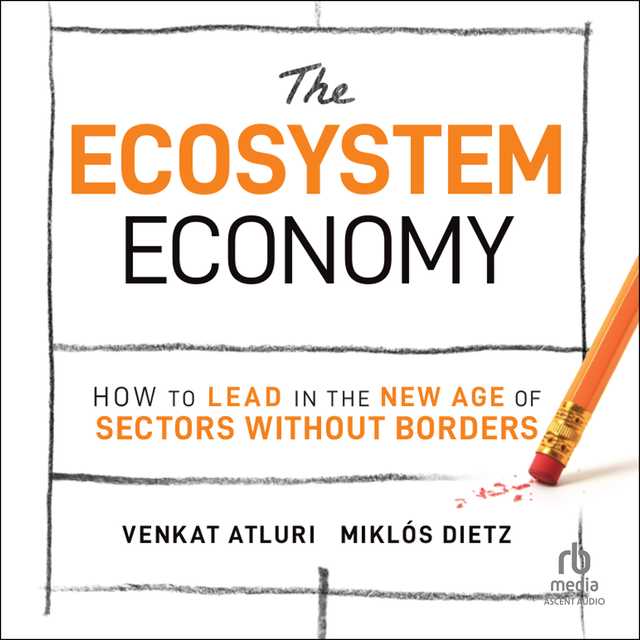Freakonomics Rev Ed Audiobook Narrator
Stephen J. Dubner is the narrator of Freakonomics Rev Ed audiobook that was written by Steven D. Levitt
About the Author(s) of Freakonomics Rev Ed
Steven D. Levitt is the author of Freakonomics Rev Ed
More From the Same
- Author : Steven D. Levitt
- Think Like a Freak
- When to Rob a Bank
- SuperFreakonomics
- Publisher : HarperAudio
- Abraham
- American Gods [TV Tie-In]
- Dead Ringer
- House of Sand and Fog
- Prey
Freakonomics Rev Ed Full Details
| Narrator | Stephen J. Dubner |
| Length | 7 hours 51 minutes |
| Author | Steven D. Levitt |
| Category | |
| Publisher | HarperAudio |
| Release date | July 10, 2007 |
| ISBN | 9780061254680 |
Subjects
The publisher of the Freakonomics Rev Ed is HarperAudio. includes the following subjects: The BISAC Subject Code is Popular Culture, Social Science
Additional info
The publisher of the Freakonomics Rev Ed is HarperAudio. The imprint is HarperAudio. It is supplied by HarperAudio. The ISBN-13 is 9780061254680.
Global Availability
This book is only available in the United States.
Goodreads Reviews
Manny
June 26, 2022
I loved this book, though I think the title is a bit misleading. It's not really about economics. In fact, he's showing you what interesting things you can discover when you apply statistical analysis to problems where you wouldn't normally think of using it. I use statistical methods a fair amount in my own work, so I found it particularly interesting. The most startling and thought-provoking example is definitely the unexpected reduction in US urban crime that occurred towards the end of the 20th century. Crime rates had been rising for decades, and people were really worried about what would happen if the trend continued. Then, suddenly, they peaked and started to decline. Why? There were a bunch of theories, all of them superficially plausible.Levitt crunched the numbers, to see what proportion of the variance could be ascribed to the different factors. This is a completely standard technique; it just hadn't been used here before. He came to the conclusion that the single most important factor, by far, was the ready availability of abortion that started to come in after Roe v Wade. Other things, like more resources for policing and tougher sentencing policies, probably helped, but not nearly as much. I didn't at all get the impression that he had been expecting this result from the start, and just wanted to prove his point. He processed the data, and went where the numbers led him. That's how you're supposed to do science.The clincher, at least as far as I was concerned, was the fact that crime statistics peaked at different points in different states, the peaks correlating very well with the dates when each state started making abortion available. States that brought it in early had correspondingly early peaks in their crime rates. It's hard to see how that could happen if Levitt's explanation weren't correct.I am surprised that there hasn't been more discussion of Levitt's findings in the political world. Maybe it's just regarded as too hot to handle. But if Levitt is right, and at the moment I would say it's up to his critics to explain why he isn't, then pro-life campaigners would seem be heading in a very unfortunate direction._________________________[Update, Jun 26 2022]In view of the Supreme Court's recent ruling, I wonder which Republican-led states have started planning for the increased levels of crime that are to be expected fifteen to twenty years from now, and which ones have decided it won't be necessary. In the second case, it would be interesting to know why not. A couple of suggestions to get the ball rolling:a) this is liberal science and can be discounted as political messaging,b) the Rapture will occur first.
Justin
July 17, 2007
I guess some people don't like this book because it's not centered around one theme. Instead, it's more about the seemingly diffuse academic work of one of the authors Steven D. Levitt (the other author is a journalist, Stephen J. Dubner). Levitt is something of an economist but more like a social scientist using the tools of Microeconomics applied to other fields that happen to catch his interest (often having something to do with cheating, corruption, crime, etc.). In the back of the book he mentions how he considers himself a student of Thomas Schelling who is kind of like the father of Game Theory (strategy theory?), except much more of a 'man of ideas' than what one might think of when one thinks about game theory today, which is much more mathematical. Anyway, as for the book itself, I thought it was really great. I really like what Levitt is doing as far as using the tools of Microeconomics in other fields. One of my intellectual heroes (I only have a few) is Kenneth Waltz who did the exact same thing in the field of International Relations in the '70's and wrote the seminal book The Theory of International Politics, which pretty much the single-handedly invented defensive (neo) realism. More generally, I think Economics is probably the most formalized of the social sciences and the one to which others should esteem. A lot of the Political Science field concerned with both voter behavior and how legislatures work is now pretty formalized as well, and, I, for one, think this is a good thing. I don't see how anyone could think it's not (good) unless they a)think the scientific method cannot be used to analyze human behavior; or b)have a visceral aversion to mathematical languages. Actually, I am one of the latter, but I, at least, see the value in having a formalized language to work with.As for the book itself, there's some maybe-controversial things in there like Levitt did some work that showed that the legalization of abortion in the U.S. (Roe v. Wade) was one of the main reasons that crime in the U.S. dropped in the '90's and continues at the same rates today. He stands behind it pretty hardily though and it doesn't seem like he has a moral agenda at all. Some might argue that the best writers are those who are best able to disguise their moral agenda, but considering he writes about all kinds of not-very-serious things like how sumo wrestling in Japan is probably corrupt as far as matches g,o and there's stuff in there about how real estate agents sell their houses for more than they sell their customers' houses (which, may or may not be surprising), I really don't think he has a hidden pro-life agenda. Anyway, there's a bunch of stuff in there (the book), hence the 'freak' in Freakonomics. It's well-written. It's not dry. It's written for a lay audience. I recommend it. Read it and feel the power of social science! ;-)
☘Misericordia☘
January 26, 2018
Extremely enlightening! Worthy of 15 stars out of 5! This is a book about the world and not about any science in particular. It's about learning to question the given and see beyond the obvious. An extremely useful gift in the misguiding modern world.Yeah, populistic much too much but neverthless compulsively readable. A definite revisit and reread.Q:As Levitt sees it, economics is a science with excellent tools for gaining answers but a serious shortage of interesting questions. His particular gift is the ability to ask such questions. For instance: If drug dealers make so much money, why do they still live with their mothers? Which is more dangerous, a gun or a swimming pool? What really caused crime rates to plunge during the past decade? Do real-estate agents have their clients’ best interests at heart? Why do black parents give their children names that may hurt their career prospects? Do schoolteachers cheat to meet high-stakes testing standards? Is sumo wrestling corrupt?And how does a homeless man in tattered clothing afford $50 headphones?(c)Q:the modern world, despite a surfeit of obfuscation, complication, and downright deceit, is not impenetrable, is not unknowable, and—if the right questions are asked—is even more intriguing than we think. All it takes is a new way of looking.(c)Q:“Experts”—from criminologists to real-estate agents-use their informational advantage to serve their own agenda. However, they can be beat at their own game. And in the face of the Internet, their informational advantage is shrinking every day-as evidenced by, among other things, the falling price of coffins and life-insurance premiums.Knowing what to measure and how to measure it makes a complicated world much less so. If you learn how to look at data in the right way, you can explain riddles that otherwise might have seemed impossible. Because there is nothing like the sheer power of numbers to scrub away layers of confusion and contradiction.So the aim of this book is to explore the hidden side of . . . everything. This may occasionally be a frustrating exercise. It may sometimes feel as if we are peering at the world through a straw or even staring into a funhouse mirror; but the idea is to look at many different scenarios and examine them in a way they have rarely been examined....Steven Levitt may not fully believe in himself, but he does believe in this: teachers and criminals and real-estate agents may lie, and politicians, and even CIA analysts. But numbers don’t.(c)Q:Levitt had an interview for the Society of Fellows, the venerable intellectual clubhouse atHarvard that pays young scholars to do their own work, for three years, with no commitments.Levitt felt he didn’t stand a chance. For starters, he didn’t consider himself an intellectual. He wouldbe interviewed over dinner by the senior fellows, a collection of world-renowned philosophers,scientists, and historians. He worried he wouldn’t have enough conversation to last even the firstcourse.Disquietingly, one of the senior fellows said to Levitt, “I’m having a hard time seeing theunifying theme of your work. Could you explain it?”Levitt was stymied. He had no idea what his unifying theme was, or if he even had one.Amartya Sen, the future Nobel-winning economist, jumped in and neatly summarized what hesaw as Levitt’s theme.Yes, Levitt said eagerly, that’s my theme.Another fellow then offered another theme.You’re right, said Levitt, my theme.And so it went, like dogs tugging at a bone, until the philosopher Robert Nozick interrupted.“How old are you, Steve?” he asked.“Twenty-six.”Nozick turned to the other fellows: “He’s twenty-six years old. Why does he need to have aunifying theme? Maybe he’s going to be one of those people who’s so talented he doesn’t need one.He’ll take a question and he’ll just answer it, and it’ll be fine.”(c)Q:There are three basic flavors of incentive: economic, social, and moral. Very often a single incentive scheme will include all three varieties. Think about the anti-smoking campaign of recent years. The addition of a $3-per-pack “sin tax” is a strong economic incentive against buying cigarettes. The banning of cigarettes in restaurants and bars is a powerful social incentive. And when the U.S. government asserts that terrorists raise money by selling black-market cigarettes, that acts as a rather jarring moral incentive.Some of the most compelling incentives yet invented have been put in place to deter crime. Considering this fact, it might be worthwhile to take a familiar question—why is there so much crime in modern society?—and stand it on its head: why isn’t there a lot more crime? After all, every one of us regularly passes up opportunities to maim, steal, and defraud. The chance of going to jail—thereby losing your job, your house, and your freedom, all of which are essentially economic penalties—is certainly a strong incentive. But when it comes to crime, people also respond to moral incentives (they don’t want to do something they consider wrong) and social incentives (they don’t want to be seen by others as doing something wrong). For certain types of misbehavior, social incentives are terribly powerful. In an echo of Hester Prynne’s scarlet letter, many American cities now fight prostitution with a “shaming” offensive, posting pictures of convicted johns (and prostitutes) on websites or on local-access television. Which is a more horrifying deterrent: a $500 fine for soliciting a prostitute or the thought of your friends and family ogling you on www.HookersAndJohns.com.(с)Q:Some cheating leaves barely a shadow of evidence. In other cases, the evidence is massive.Consider what happened one spring evening at midnight in 1987: seven million American childrensuddenly disappeared. The worst kidnapping wave in history? Hardly. It was the night of April 15,and the Internal Revenue Service had just changed a rule. Instead of merely listing each dependentchild, tax filers were now required to provide a Social Security number for each child. Suddenly,seven million children—children who had existed only as phantom exemptions on the previousyear’s 1040 forms—vanished, representing about one in ten of all dependent children in the UnitedStates(c)Q:Of all the ideas that Kennedy had thought up—and would think up in the future—to fight bigotry, his Superman campaign was easily the cleverest and probably the most productive. It had the precise effect he hoped: turning the Klan’s secrecy against itself, converting precious knowledgeinto ammunition for mockery. Instead of roping in millions of members as it had just a generationearlier, the Klan lost momentum and began to founder. Although the Klan would never quite die,especially down South—David Duke, a smooth-talking Klan leader from Louisiana, mountedlegitimate bids for the U.S. Senate and other offices—it was also never quite the same. In The Fiery Cross: The Ku Klux Klan in America, the historian Wyn Craig Wade calls Stetson Kennedy “the single most important factor in preventing a postwar revival of the Ku Klux Klan in the North.”This did not happen because Kennedy was courageous or resolute or unflappable, even though he was all of these. It happened because Kennedy understood the raw power of information. The Ku Klux Klan was a group whose power—much like that of politicians or real-estate agents or stockbrokers—was derived in large part from the fact that it hoarded information. Once that information falls into the wrong hands (or, depending on your point of view, the right hands), much of the group’s advantage disappears.(с)Q:Information is so powerful that the assumption of information, even if the information does not actually exist, can have a sobering effect.(c)Q:It is common for one party to a transaction to have better information than another party. Inthe parlance of economists, such a case is known as an information asymmetry. We accept as averity of capitalism that someone (usually an expert) knows more than someone else (usually aconsumer). (c)Q:If you were to assume that many experts use their information to your detriment, you’d beright. Experts depend on the fact that you don’t have the information they do. Or that you are sobefuddled by the complexity of their operation that you wouldn’t know what to do with theinformation if you had it. Or that you are so in awe of their expertise that you wouldn’t darechallenge them. If your doctor suggests that you have angioplasty—even though some currentresearch suggests that angioplasty often does little to prevent heart attacks—you aren’t likely tothink that the doctor is using his informational advantage to make a few thousand dollars forhimself or his buddy. But as David Hillis, an interventional cardiologist at the University of TexasSouthwestern Medical Center in Dallas, explained to the New York Times, a doctor may have thesame economic incentives as a car salesman or a funeral director or a mutual fund manager: “Ifyou’re an invasive cardiologist and Joe Smith, the local internist, is sending you patients, and if youtell them they don’t need the procedure, pretty soon Joe Smith doesn’t send patients anymore.”(c)Q:Consider this true story, related by John Donohue, a law professor who in 2001 was teaching at Stanford University: “I was just about to buy a house on the Stanford campus,” he recalls, “and the seller’s agent kept telling me what a good deal I was getting because the market was about to zoom. As soon as I signed the purchase contract, he asked me if I would need an agent to sell my previous Stanford house. I told him that I would probably try to sell without an agent, and he replied, ‘John, that might work under normal conditions, but with the market tanking now, you really need the help of a broker.’”Within five minutes, a zooming market had tanked. Such are the marvels that can be conjured by an agent in search of the next deal.(c)Q:They were also a lot richer, taller, skinnier, and better-looking than average. That, at least, is what they wrote about themselves. More than 4 percent of the online daters claimed to earn more than $200,000 a year, whereas fewer than 1 percent of typical Internet users actually earn that much, suggesting that three of the four big earners were exaggerating. Male and female users typically reported that they are about an inch taller than the national average. As for weight, the men were in line with the national average, but the women typically said they weighed about twenty pounds less than the national average.Most impressively, fully 70 percent of the women claimed “above average” looks, including 24 percent claiming “very good looks.” The online men too were gorgeous: 67 percent called themselves “above average,” including 21 percent with “very good looks.” This leaves only about 30 percent of the users with “average” looks, including a paltry 1 percent with “less than average” looks—which suggests that the typical online dater is either a fabulist, a narcissist, or simply resistant to the meaning of “average.” (Or perhaps they are all just realists: as any real-estate agent knows, the typical house isn’t “charming” or “fantastic,” but unless you say it is, no one will even bother to take a look.) Twenty-eight percent of the women on the site said they were blond, a number far beyond the national average, which indicates a lot of dyeing, or lying, or both. Some users, meanwhile, were bracingly honest. Eight percent of the men—about 1 in every 12 conceded that they were married, with half of these 8 percent reporting that they were “happily married.” But the fact that they were honest doesn’t mean they were rash. Of the 258 “happily married” men in the sample, only 9 chose to post a picture of themselves. The reward of gaining a mistress was evidently outweighed by the risk of having your wife discover your personal ad. (c)Q:But if there is no unifying theme to Freakonomics, there is at least a common thread running through the everyday application of Freakonomics. It has to do with thinking sensibly about how people behave in the real world. All it requires is a novel way of looking, of discerning, of measuring. This isn’t necessarily a difficult task, nor does it require supersophisticated thinking. We have essentially tried to figure out what the typical gang member or sumo wrestler figured out on his own (although we had to do so in reverse).Will the ability to think such thoughts improve your life materially? Probably not. Perhaps you’ll put up a sturdy gate around your swimming pool or push your real-estate agent to work a little harder. But the net effect is likely to be more subtle than that. You might become more skeptical of the conventional wisdom; you may begin looking for hints as to how things aren’t quite what they seem; perhaps you will seek out some trove of data and sift through it, balancing your intelligence and your intuition to arrive at a glimmering new idea. Some of these ideas might make you uncomfortable, even unpopular. To claim that legalized abortion resulted in a massive drop in crime will inevitably lead to explosive moral reactions. (c)
Riku
July 09, 2016
As the old joke goes, the questions in economics exams are the same every year; only the answers change.(re-reading in prep for the super-freaks)
Ahmad
August 27, 2019
Freakonomics: A Rogue Economist Explores the Hidden Side of Everything (Freakonomics), Steven D. Levitt, Stephen J. DubnerFreakonomics: A Rogue Economist Explores the Hidden Side of Everything is the debut non-fiction book by University of Chicago economist Steven Levitt and New York Times journalist Stephen J. Dubner. It was published on April 12, 2005, by William Morrow. The book has been described as melding pop culture with economics. By late 2009, the book had sold over 4 million copies worldwide. The book is a collection of articles written by Levitt, an expert who had gained a reputation for applying economic theory to diverse subjects not usually covered by "traditional" economists. In Freakonomics, Levitt and Dubner argue that economics is, at root, the study of incentives. The book's chapters cover:Chapter 1: Discovering cheating as applied to teachers and sumo wrestlers, as well as a typical Washington, D.C.–area bagel business and its customersChapter 2: Information control as applied to the Ku Klux Klan and real-estate agentsChapter 3: The economics of drug dealing, including the surprisingly low earnings and abject working conditions of crack cocaine dealersChapter 4: The role legalized abortion has played in reducing crime, contrasted with the policies and downfall of Romanian dictator Nicolae Ceauşescu (Levitt explored this topic in an earlier paper entitled "The Impact of Legalized Abortion on Crime," written with John Donohue.)Chapter 5: The negligible effects of good parenting on educationChapter 6: The socioeconomic patterns of naming children (nominative determinism)تاریخ نخستین خوانش: روز بیست و هفتم ماه آگوست سال 2008 میلادیعنوان: اقتصاد ناهنجاریهای پنهان اجتماعی؛ نویسنده: استیون لویت، استپان دابنر؛ مترجم: سعید مشیری؛ تهران: نشر نی، 1386؛ در 269 ص؛ شابک: 9789643129507؛ چاپ دوم 1392؛ موضوع: اقتصاد از نویسندگان امریکایی - جنبه های روانشناسی - سده 21 معنوان: اقتصاد، علم انگیزهها؛ نویسنده: استیون دی. لویت؛ مترجم: امیرحسین توکلی؛ تهران: سبزان، 1385؛ در 197 ص؛ شابک: 9789648249674؛ عنوان روی جلد: اقتصاد علم انگیزهها: مهارتهای لازم برای کشف ابعاد پنهان پدیدهها؛کتاب «فریکونومیکس» در باره ی اقتصاد، از اقتصاددان دانشگاه شیکاگو «استیون لویت» است، که نخستین بار در روز دوازدهم ماه آوریل سال 2005 میلادی منتشر شد. این کتاب تا پایان سال 2009 میلادی، بیش از چهار میلیون نسخه فروش داشته است. کتاب با عنوان «اقتصاد ناهنجاریهای اجتماعی» توسط نشر نی و با ترجمه ی جناب «سعید مشیری»، و با عنوان: «اقتصاد، علم انگیزهها»؛ با ترجمه ی جناب «امیرحسین توکلی»، منتشر شده است. کتاب چندین فصل دارد: درباره حقه زدن در شغلهایی مانند معلمی و کشتیگیران سومو؛ شباهتهای کوکلوسکلان و افراد معاملات ملکی؛ سیستم اقتصادی کارتلهای مواد مخدر؛ تاثیر قانونیسازی سقط جنین در کاهش جرایم چندین سال بعد؛ نقش بسیار کم تربیت خوب کودکان توسط والدین در بهتر شدن آموزش و پرورششان؛ و الگوهای نامگذاری کودکان در یک جامعه. ا. شربیانی
Amit
May 27, 2019
The book is totally different than ordinary books on this topic. It will bring out those facts that we don't want to eve look or discuss. It has provided many examples with those are unbelievable. It has used to comapre sumo wrestlers and school teachers. IT goona freak you all the time.May the style of the wrtitng book is different but he delivers the information that is valuable to all. It will change the way you think about the modern world.
Aileen
September 15, 2007
I am indebted to airport bookstores. And I am thus indebted to such an extent, that I can confess to arriving early for any flight departing from an airport with a bookstore for the sole purpose of securing a few additional minutes to browse books. If it were not for the practicalities of travelling, I would probably have bought this book much sooner than I did for I had been securing extra minutes in airport bookstores just to read through another chapter long before I actually bought it.You see, my travels are laden with a heavy debate: shall I pack my extra suitcase with books or groceries? I resolve this by alternating. For one trip to the Outside, a spare duffel bag will be dedicated to books and I will shun all opportunities to visit grocery stores just to preserve that determination. On the next visit, I will carry a spare cooler (rather than duffel bag) and splurge on leg of lamb and cheeses free of artificial coloring. The ultimate effect of this system, however, is a backlog in possessing the books I'd like to read.Finally, however, the fates aligned. I was travelling to Iowa on what I expected to be a gloriously grocery-focused trip. But my cooler broke as I was carrying it to the truck that we would drive to our local airport. There wasn't time to fix it. I was sad, of course, as I had been anticipating all the pork I was going to return with from Iowa. But I consoled myself with all those Iowa cookbooks I could now carry, and resolved not to prolong any lamentations over the cooler. And, oh, did I find myself lugging around a heavy library - such hours did I spend in Powells (there was a 1 week layover in Oregon) and Iowa City's bookstores. The day before we left Iowa, Nate told me about how much he enjoyed this book. His description renewed my interest, and I committed myself to buying a copy before we left. But, alas, we ran out of time. We didn't make it to a bookstore. It was sadder than the last-minute loss of the cooler. So when we arrived in Chicago, and had a few minutes to wait for the connecting flight to Alaska, and our gate was right next to a book kiosk, and I was pretty sure there was just enough room in my carry-on to squeeze in one more book - it was this book that I grabbed. I raced through it. Loving each chapter. I really can't recommend it enough. A fun read, for those who like to be entertained by books. Informative too, for those that like to read for knowledge, thought, and/or discourse. But what elevates it to favorite is that it alters perception and challenges assumptions. For what it's worth, I have no regrets that I carried this book rather than Iowa pork.....and I can think of no finer testament to a good book. Then again, most of my entertainment these days revolves around pickling turnips. So if turnips aren't your thing, feel free to take my recommendation with a grain of salt....but you should still read this book.
Baba
September 22, 2020
Levitt and Dubner's ground breaking look at the world through the eyes of collated data that tells a story in itself, like their shocking discovery of what caused a huge drop in crime in America in the 1990s. Reading this a decade on I still find this so absorbing and interesting which is just as much as a result of their writing style as their great content.[image error]Just remember assume nothing... question everything! 8 out of 12.
Feli
July 14, 2021
4,5/5 ⭐“The conventional wisdom is often wrong.”As an economics student, this really helped me to open my mind to learn how to analyse everyday situations from a economic point of view. And it also showed me a new branch of economics that has become my favourite.If you want to learn the basics on economics, this book is for you. Some people might find it a little bit basic, but I think it should be taken as an introduction to the topic. More than teaching you how economics work, which is no easy task, I believe its purpose is to try and show how for every situation you can find an economic assumption to back it up.What should be also taken into account when reading this book is that to prove most of his theories Levitt relies on statistics, which are part of economics as a science but not pure economics itself. Basically, do not expect to become an expert on the subject after reading it.Anyways, I found the book pretty entertaining and well written. Highly recommend it.
Caroline
May 21, 2015
A fascinating book that taught me a lot of things about myself and other people that were distinctly uncomfortable. Herewith some of the tidbits I picked up.* About 10% of the population are happy to commit some sort of fraud, even if it just consists of not paying for their lunchtime sandwiches.* IQ is inherited not nurtured* On the whole we don't like old people.* Attractive men are rich, tall and have a full head of hair.* Attractive women are pretty, blonde and not too successful.* The introduction of legalized abortion can drop crime levels.* Money spent on election campaigns is mostly money down the drain.* Often what we say in public is not what we feel in private. (eg racist politicians are often condemned in public but voted for in the privacy of the voting booth.)And the good news...* You can vastly change your life for the better by getting online and doing your own research. Leaving it all to the experts - be they doctors, funeral directors or life insurance agents - is a mugs game.I found this book hugely provocative, but also fascinating, and it has certainly broadened my outlook by a whole stack. I'm not convinced....but it's got me wondering about a lot of stuff. It was also written with humour. Chapter 3 for instance is titled Why Do Drug Dealers Still Live with Their Moms? Very highly recommended.
Kon
October 31, 2022
What a fun random read! Coming into this with no prior knowledge of what it's about is probably what made this so enjoyable. This book will make you think... think about things that may never have crossed your mind before. Once a concept is mentioned it's almost like a "a-ha!" moment leaving you pondering why that thought never popped into your head before. I loved the quirky analysis packed with statistics (who doesn't love stats?). I think the last topic covered was the least enjoyable, but that at moment the author already has you hooked. I'll definitely be checking out more books in the series.
Yousif
July 09, 2016
A great book. You will love it if you like to question how and why things are what they are. How new names are being introduced to our newborns? How trends are being set? What is the relationship between teachers and sumo fighters? Why drug dealers (despite presumably being rich) still live with their moms? Why crimes get lowered?If you like deep answers to great and silly questions like these, then you have to give it a go.The authors emphasize on using "economics" tools to explore various fields in this world.هذا الكتاب الجنوني تم بيع 4 مليون نسخة منه وتمّت ترجمته إلى 35 لغة. الكتاب لا يتحدّث عن موضوع واحد معيّن، ففي كل فصل يتحدّث عن موضوع آخر ولكن ما يجمعهم هو ان كل ما يفعله الفرد غالباً يكون لوجود باعث/حافز معيّن (قد يكون بارز أو غير بارز) ولكن في كل الحالات هناك حافز للأفعال والقرارات التي تصدر من البشر. أيضاً ما يميّز الكتاب الطريقة المثيرة للكاتبان في دراسة وتحليل معمّق بعض الأسئلة الغريبة المثيرة في هذا العالم. الكتاب سيثير كل من لديه حب للإستطلاع بشكل جنوني . يجمعون جبال من المعلومات الغير منسّقة و من ثم يسألون سؤال (قد يكون مضحك) ولكن لم يُسأل من قبل. إنها فعلاً لطريقة مثيرة.في احد الفصول مثلاً، تطرّق الكاتبان لقضية تسمية المواليد الجدد وكيفية يتم اختيار المجتمع لتلك الأسماء. قاموا بدراسة كل التسميات منذ الستينات ومقارنتها بأسماء اليوم و رسم الاتجاه/الميل طوال فترة الدراسة. ثم درسوا إن كانت هناك علاقة بين الأسماء والمستوى الأكاديمي والمهني للفرد لاحقاً من باب هل الأسماء تلعب دور في التأثير على شخصيتنا ونجاحنا العلمي والعملي. وأيضاً قارنوا الفروقات في التسمية بين الأعراق المختلفة وذكر الملاحظات العجيبة الغريبة في طريقة التسمية عند الأعراق المختلفة.في فصل آخر، يسئلون هذا السؤال المثير "هل هناك وجه شبه بين مصارعي السومو اليابانيين و المدرّسين؟" طبعاً هذا الفصل سيكون مثير جدّاً لأساتذتنا الأفاضل في المدارس والجامعات حيث يتطرّق لقضية كيف ولماذا قد يغش هؤلاء المصارعين والمدرّسين وكيفية اكتشاف ذلك الغش بطرق عجيبة غريبة قام بها الكاتبان! الكل يتحدّث عن غش الطلاّب ولكن الكتاب يجعل المسألة أكثر إثارة ويُثبت وجود غش بعض المدرّسين وخصوصاً في الدول التي تُكافأ المدرّس على مقدار تفّوق طلبته (كما هو الحال في الولايات المتّحدة).وماذا عن متاجرين المخدّرات؟ (أعاذنا الله وإيّاكم منها)، لماذا هؤلاء المتاجرين في أمريكا (على الرغم من الفكرة السائدة انّهم يطلّعون ذهب) مازالوا يعيشون مع أمّهاتهم؟؟! هل هناك ثمّة عامل في المسألة لم نتوصّل إليه. الكتاب يجيب على ذلك بطريقة عجيبة حيث تسلّل احد طلاّب الجامعة آنذاك (حالياً بروفيسور علم اجتماع في جامعة كولومبيا) "سودير فينكاتيش" إلى احد العصابات وخاطر بحياته ولكنه نجا ودوّن كثير من الملاحظات وعمل دراسات أجابت الكثير من المسائل الغامضة في عالم العصابات والمخدرات.لماذا الجرائم في نيويورك انخفضت دراماتيكياً وبشكل مفاجئ؟ أي أخطر حوض السباحة أم المسدّس؟ هل فعلاً تربية الآبائ تؤثّر في سلوك الأبناء؟ وغيرها من الأسئلة التي يجيب عليها الكاتبان ستيفين ليفيت (اقتصادي) و ستيفين دوبنر (صحفي).
Rob
January 31, 2008
An engaging read but not necessarily the scintillating, mind-blowing experience it had been hyped as.Levitt and Dubner present their arguments well and their style makes the at-times daunting subject matter easier to approach and thus easier to digest. I don't read much non-fiction (for example) and
Sean
September 14, 2007
There are at least two ways you can read Freakanomics – as a fun and interesting little book that uses data to tell us little things about ourselves and the world. Or, you can see it as econometrics gone apeshit and finally taking over the world. I kind of view it as both.That said, I really enjoyed reading this. I think Levitt has developed some useful tools that can tell us some interesting stuff about the way little corners of our world are organized. I also think it is a little bit batty to think we can use economic models to prove a causal relationship between abortion laws and crime rates. There might be something there, but in order to come to a conclusion about two subjects so complex, Levitt must have had to control for so many other factors that I doubt his research is all that reliable. In comparison, the section on the economics of the street level drug trade is fascinating and probably close to accurate. The researchers were looking at a relatively small data set, sure, but I think it is still probably tells us at something useful about how that world works.I guess what I find most interesting about this one is the effect it has had on the culture. Economics is so hot right now. Everyone is into it, it is the undergraduate degree on the rise and plenty of those kids decided they liked economics by reading Levitt’s book. I am not sure if this is a good or a bad thing, but it is definitely a trend we can track, at least in part to this book. In the end this is a fast fun and diverting read, but don’t take it too seriously, cause I am pretty sure some of these finding are bunk.
Ashley
October 08, 2019
This would have been much more impressive had I read it in a timely manner, like say ten years ago when I first wanted to. It does read a tad bit dated, even though this is the updated version, but it's still pretty fascinating, and I think worth reading. I will be reading the second book and checking out the podcast. [four and a half months later]And now I have finally come to write this review, and I have forgotten nearly everything about it but the overall feeling I got from it. This will not be a comprehensive review. So.My feelings, in summary:*Mostly this was a fun way to apply statistics and math to real life. *Since the book is now fourteen years old and a lot of it hinges on current cultural norms and references, it doesn't age as well as other books might. I know there was more than this, but the one that stood out in my head was the way he treated rape statistics. (Of course, I remember nothing about the way he treated them, only that it felt wrong to me.)*There was something in here about realtors? It made me very suspicious to buy property. Also I don't want to buy property because I like having people come fix things for me.*There was something else in here about gangs and a researcher embedded with them? I don't remember the significance.*This might be the worst review I have ever written.It made for a good audiobook, though! So if you're still going to check it out and like listening to things, that is a good way to go.[3.5 stars, rounded up]
Frequently asked questions
Listening to audiobooks not only easy, it is also very convenient. You can listen to audiobooks on almost every device. From your laptop to your smart phone or even a smart speaker like Apple HomePod or even Alexa. Here’s how you can get started listening to audiobooks.
- 1. Download your favorite audiobook app such as Speechify.
- 2. Sign up for an account.
- 3. Browse the library for the best audiobooks and select the first one for free
- 4. Download the audiobook file to your device
- 5. Open the Speechify audiobook app and select the audiobook you want to listen to.
- 6. Adjust the playback speed and other settings to your preference.
- 7. Press play and enjoy!
While you can listen to the bestsellers on almost any device, and preferences may vary, generally smart phones are offer the most convenience factor. You could be working out, grocery shopping, or even watching your dog in the dog park on a Saturday morning.
However, most audiobook apps work across multiple devices so you can pick up that riveting new Stephen King book you started at the dog park, back on your laptop when you get back home.
Speechify is one of the best apps for audiobooks. The pricing structure is the most competitive in the market and the app is easy to use. It features the best sellers and award winning authors. Listen to your favorite books or discover new ones and listen to real voice actors read to you. Getting started is easy, the first book is free.
Research showcasing the brain health benefits of reading on a regular basis is wide-ranging and undeniable. However, research comparing the benefits of reading vs listening is much more sparse. According to professor of psychology and author Dr. Kristen Willeumier, though, there is good reason to believe that the reading experience provided by audiobooks offers many of the same brain benefits as reading a physical book.
Audiobooks are recordings of books that are read aloud by a professional voice actor. The recordings are typically available for purchase and download in digital formats such as MP3, WMA, or AAC. They can also be streamed from online services like Speechify, Audible, AppleBooks, or Spotify.
You simply download the app onto your smart phone, create your account, and in Speechify, you can choose your first book, from our vast library of best-sellers and classics, to read for free.
Audiobooks, like real books can add up over time. Here’s where you can listen to audiobooks for free. Speechify let’s you read your first best seller for free. Apart from that, we have a vast selection of free audiobooks that you can enjoy. Get the same rich experience no matter if the book was free or not.
It depends. Yes, there are free audiobooks and paid audiobooks. Speechify offers a blend of both!
It varies. The easiest way depends on a few things. The app and service you use, which device, and platform. Speechify is the easiest way to listen to audiobooks. Downloading the app is quick. It is not a large app and does not eat up space on your iPhone or Android device.
Listening to audiobooks on your smart phone, with Speechify, is the easiest way to listen to audiobooks.






























